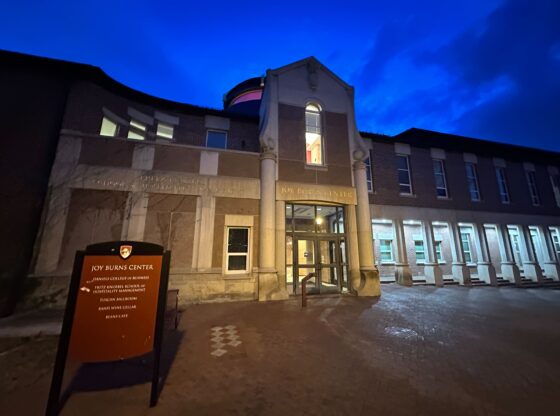A defining facet of university life is that by bringing together thousands of bright young minds fresh with ideas, a campus encourages students to join together in the pursuit of enacting real change. However, once summer break came around to release us back into the world, our campus grew quiet. The wider world of social progress movements, though, certainly has not.
Now, with the University of Denver community gathered once again, and a pivotal national election on the horizon, the atmosphere feels ripe for student-led social progress. As we step over the starting line of the new academic year, let’s take a moment to look back at this summer’s biggest events regarding the state of marginalized communities.
At the top of the most notable social progress events of the season was, undoubtedly, the Democratic National Convention held between Aug. 19 and Aug. 22 of this year. Vice President Kamala Harris’ official nomination as the Democratic Party’s presidential candidate stood out as the highlight of the event.
With the nomination, the vice president became the first Black female presidential candidate, adding to a long list of her “firsts,” being the first Person of Color and the first woman to be elected attorney general of California as well as the first South Asian American to be elected to the United States Senate. However, the vice president’s nomination was not the only noteworthy instance of representation on the convention stage.
The convention featured a long list of ground-breaking and influential speakers representing identity groups rarely highlighted at such high-profile political events.
For instance, Illinois Senator Tammy Duckworth — the first Thai American to be elected to Congress, the first woman with a disability elected to Congress, the first female double amputee elected to Congress and the first woman to give birth while serving in the United States Senate — spoke on the second night of the convention. Colorado’s own governor Jared Polis – the first openly gay man to be elected governor of a U.S. state – spoke on the third night.
Additionally, the convention featured a slew of high-profile public figures such as Michelle and Barack Obama, Oprah and even Golden State Warriors Head Coach Steve Kerr.
Now, why does it matter who was on the stage at one political party’s national convention? In short, this convention was an unexpectedly successful public relations event, garnering more than 26.2 million viewers on the last night alone. This provided the party with a wide-reaching national platform, and the ramifications and potential impact of this cannot be discounted.
For decades, the number one strategy of American politicians has been to address the middle and avoid rocking the boat. Being palatable to many and controversial to none has long been considered a fast track to elected offices.
This summer’s DNC, however, seemed to signal a shift in national political strategies by discussing matters such as racial justice and reproductive rights more boldly and conspicuously than in the recent past. Essentially, the four-day event sent a message to the nation and to the world that states, “Our country is diverse, and for that we are proud.”
This political evolution is representative of what many have undoubtedly felt for years: our nation’s attitude toward discourse and social progress has become noticeably more open.
This is not solely characteristic of the United States. Around the world this summer, several countries and territories have made headway in the fight for LGBTQ+ rights. Just since the end of the last academic year, Thailand’s senate approved a same-sex marriage bill with overwhelming support, Namibia decriminalized homosexual acts and same-sex marriage became legal in the Dutch constituent countries of Aruba and Curaçao.
The past few months have indeed seen a great deal of progress when it comes to the advancement of marginalized communities. However, plenty of progress remains to be made as we move into the later part of the year.
Human Rights Watch reports that continuing and deeply pressing humanitarian problems in the United States include racism and anti-immigrant sentiments. A glance at national news quickly reveals why. Immigration has been a contentious and persistent topic in American politics for years, but conversations concerning this topic have only gotten more heated and misinformed in the later part of the summer.
Discredited claims made by former president Donald Trump have fueled an anti-immigrant panic in cities across the United States. As the flames continue to be fanned, the responses have become increasingly destructive, as in the case of a recent bomb threat made toward the city hall of Springfield, Ohio by a resident displeased with increasing immigration.
In addition, experts report that women’s rights are becoming increasingly vulnerable in the United States. A lack of solid legal protections and rapidly shifting social sentiments leave both cisgender and transgender women in a precarious position concerning issues like reproductive freedoms and participation in school athletics.
As stated previously, it is clear that Americans are, by force or by choice, becoming increasingly open to discussions of social change. As we return to campus and step into a brand new year at the University of Denver, let us not be placated by the progress already made this year or discouraged by the mountains left to climb. Rather, let us be encouraged and motivated by the opportunity now presented to us to create meaningful change in our communities.








